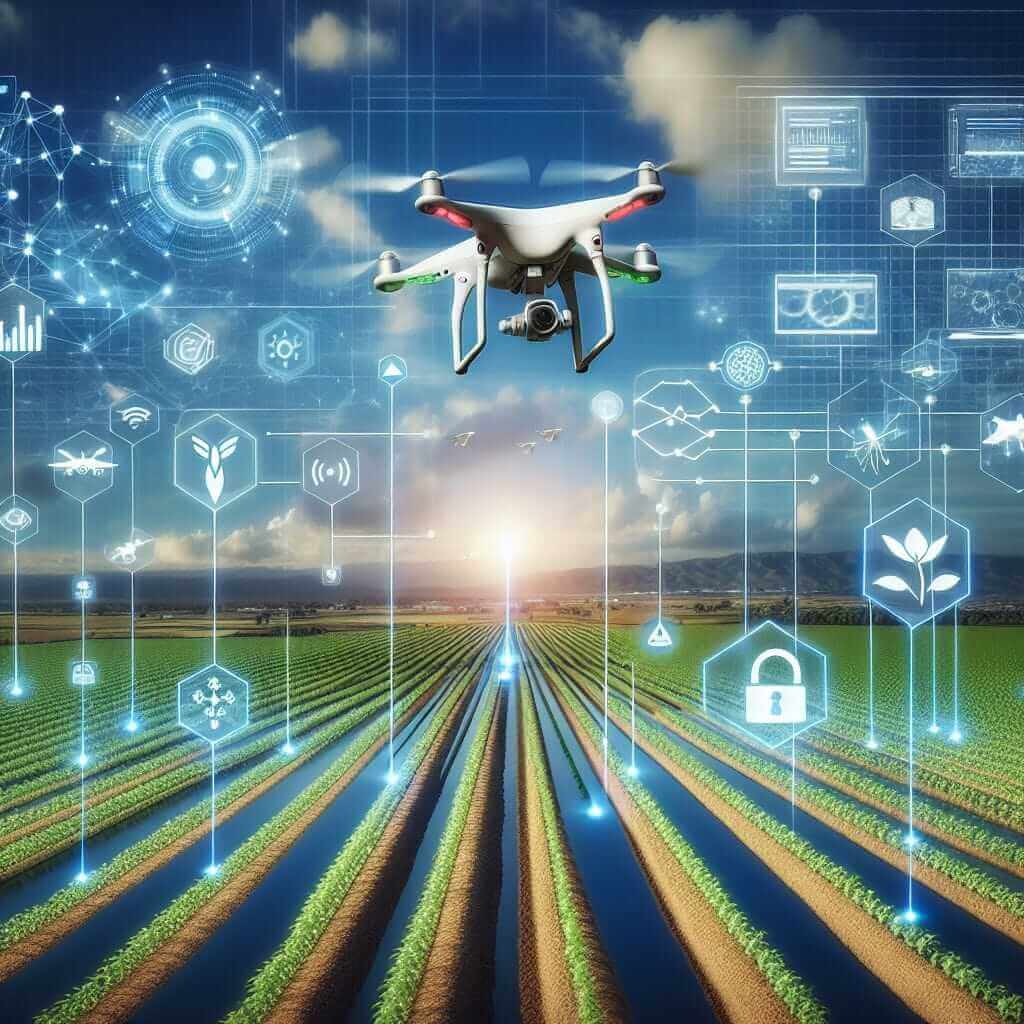When preparing for the IELTS Reading section, it’s crucial to familiarize yourself with a variety of topics. One increasingly relevant area is technology in agriculture, particularly the challenges of incorporating AI into precision farming. This topic not only reflects current trends but also encompasses a range of complex issues, offering a comprehensive practice opportunity.
In the past, similar topics have appeared in the IELTS Reading section, indicating a likelihood of reoccurrence. This article will provide a detailed reading passage, followed by questions and answers. The exercise is designed to simulate real IELTS conditions, helping you effectively prepare for the exam.
Reading Exercise: Medium Text
The Challenges of Incorporating AI into Precision Farming
Artificial Intelligence (AI) has ushered in a new era of technological advancements, particularly in precision farming. By offering tailored solutions to agricultural practices, AI aims to optimize crop yield and reduce environmental impact. However, the integration of AI in precision farming is fraught with challenges.
Technological Infrastructure
A significant hurdle in adopting AI in agriculture is the need for sophisticated technological infrastructure. Many farming operations, particularly in developing regions, lack the high-speed internet connectivity essential for AI systems to function optimally. Furthermore, the initial setup costs for advanced sensors and data analytics platforms can be prohibitive.
Data Complexity and Reliability
AI’s effectiveness in precision farming heavily relies on data. Farmers need to gather vast amounts of information regarding soil conditions, weather patterns, and crop health. The sheer volume and complexity of this data can be overwhelming. There is also the issue of data reliability. Inconsistent or inaccurate data can lead to flawed AI predictions, undermining the technology’s benefits.
Skills Gap
Another critical challenge is the skills gap among farmers. The successful implementation of AI technologies requires a certain level of technical expertise. Many farmers may not possess the necessary skills to operate sophisticated AI systems, necessitating extensive training programs. This skills gap can hinder the widespread adoption of AI in agriculture.
Ethical and Privacy Concerns
AI in precision farming introduces ethical and privacy concerns. The extensive data collection required may raise questions about data ownership and privacy. Farmers might be reluctant to share sensitive information without clear guidelines on data use and protection. Additionally, ethical concerns arise regarding the equitable distribution of AI benefits among large and small-scale farmers.
Economic Factors
The economic viability of AI in precision farming is another concern. High costs associated with implementing AI can be a barrier for small-scale farmers. Moreover, the return on investment can be uncertain, particularly in the short term. This financial uncertainty can deter farmers from investing in AI technologies.
Questions
Multiple Choice
-
What is the primary problem regarding technological infrastructure in AI adoption for precision farming?
- A. Lack of government policies
- B. High-speed internet connectivity
- C. Limited access to AI companies
- D. Mismanagement of resources
-
Why is data reliability crucial for AI in precision farming?
- A. Inconsistent data leads to better crop yield
- B. Accurate data enhances AI predictions
- C. AI systems can function without data
- D. Data reliability has no impact on AI effectiveness
True/False/Not Given
- AI in precision farming aims to optimize crop yield and reduce environmental impact.
- Farmers worldwide currently have equal access to the infrastructure needed for AI in agriculture.
Matching Headings
- Match the following headings to the appropriate paragraph in the text.
- i. Data Collection Challenges
- ii. Economic Viability Concerns
- iii. Need for Technical Training
- iv. Infrastructure Requirements
Sentence Completion
- One ethical concern regarding AI’s use in agriculture __.
- The skills gap among farmers __.
Answer Keys
Multiple Choice
- B. High-speed internet connectivity
- B. Accurate data enhances AI predictions
True/False/Not Given
- True
- False
Matching Headings
-
- Data Collection Challenges – Paragraph 3
- Economic Viability Concerns – Paragraph 6
- Need for Technical Training – Paragraph 4
- Infrastructure Requirements – Paragraph 2
Sentence Completion
- One ethical concern regarding AI’s use in agriculture is data privacy.
- The skills gap among farmers can hinder the widespread adoption of AI.
Common Mistakes and Tips
Common Mistakes
- Failing to understand the nuance between True/False/Not Given.
- Misinterpreting the scope of a paragraph for Matching Headings.
- Overlooking details in data reliability and ethical concerns.
Tips
- Practice identifying main ideas and supporting details.
- Focus on understanding the purpose of each paragraph.
- Pay close attention to keywords and their synonyms.

Vocabulary
- Sophisticated (adj) /səˈfɪstɪˌkeɪtɪd/: complex or intricate
- Prohibitive (adj) /prəˈhɪbɪtɪv/: so high as to prevent something from being done
- Reliability (n) /rɪˌlaɪəˈbɪlɪti/: the quality of being dependable or accurate
- Ethical (adj) /ˈɛθɪkəl/: relating to moral principles
- Infrastructure (n) /ˈɪnfrəˌstrʌktʃər/: basic physical and organizational structures
Grammar
Conditional Sentences
- Type 1 (Real Condition): If farmers gather accurate data, AI predictions will be more reliable.
- Type 2 (Unreal Present): If farmers knew how to operate AI systems, adoption rates would increase.
- Type 3 (Unreal Past): If the initial setup costs had been lower, more farmers would have adopted AI technologies.
Conclusion
Incorporating AI into precision farming holds immense potential but presents numerous challenges. By understanding these complexities and preparing thoroughly, you can enhance your performance in the IELTS Reading section. Remember to focus on comprehension and practice regularly to achieve a high band score.